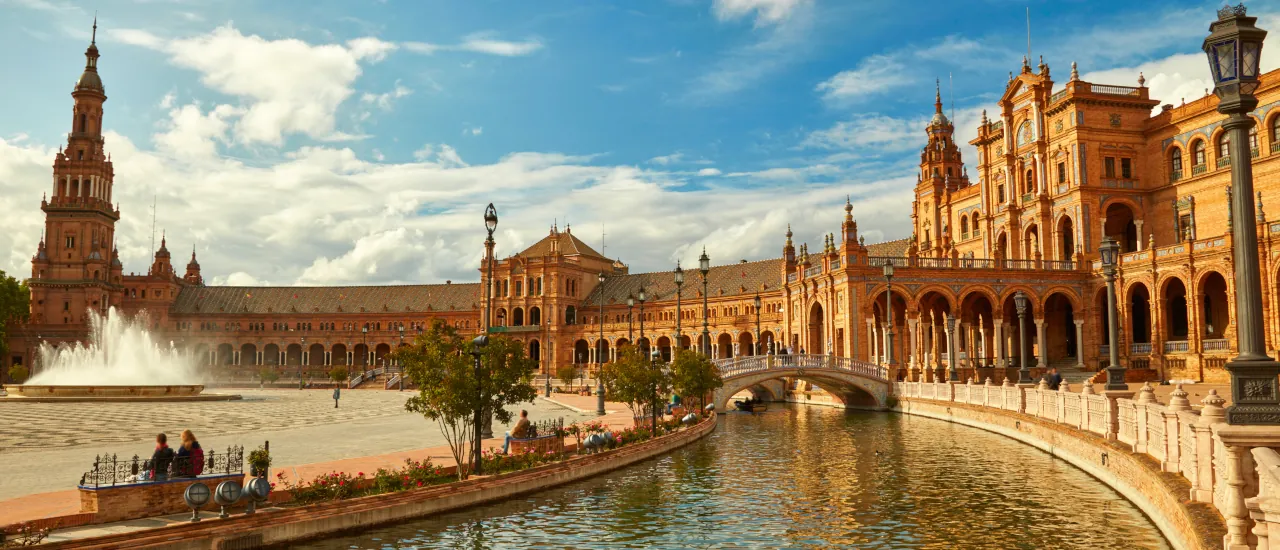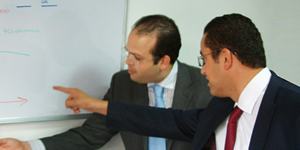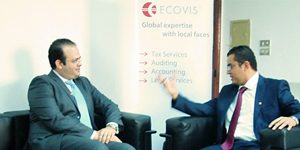



We are pleased to announce that Ecovis now has a new office in Seville, Andalucía, Spain managed by Ana Ruiz.
Sevilla, renowned for its rich cultural heritage, stunning architecture, and warm climate, offers an exceptional quality of life that aligns perfectly with our commitment to excellence in advisory services. The new office will provide a full range of services, including payroll, tax and accounting, ensuring that our clients receive comprehensive support tailored to their needs.
With over 30 years of experience in providing top-notch advisory services, our firm is well-equipped to meet the diverse needs of our clients. “Sevilla’s strategic location within the important region of Andalucía and its dynamic business environment make it an ideal place to expand our services. We are excited to contribute to the local community and to offer our clients the benefits of our international expertise,” says Ana Ruiz, managing partner of the Sevilla office.
Ana Ruiz and her team look forward to collaborating with the Ecovis network and leveraging the collective expertise to serve all clients better. „The vibrant and historic city of Sevilla presents exciting opportunities, and we are eager to explore them together,” she says.

The Government of Türkiye (formerly Turkey) has introduced new tax regulations. These include the extension of currency-protected deposits and a tax on inflation profits. It has also been decided that the additional tax is constitutional. The Ecovis consultants explain the latest developments.
As part of the policy to protect the value of the Turkish lira (TRY) in Türkiye, for the first time on 23/02/2022, with the Exception in the Fourth Paragraph of the Provisional Article 14 of the Corporate Tax Law, foreign currencies in the balance sheets dated 21/12/2021 and 31/12/2022 were converted into TL so regulation has been exempted interest, dividends, and exchange rate differences from income and corporate taxes by depositing them into Exchange Protected Deposit accounts.
The period has been extended to 31/12/2022 in the regulation regarding the exemption of interest, dividends, and exchange rate differences from income and corporate taxes if converted into TL and deposited into Exchange Protected Deposit accounts. Accordingly, corporate tax exemption will be valid for interest, dividends, exchange rate differences, and other earnings obtained within the scope of the evaluation of foreign currencies in corporate taxpayers’ balance sheets as of 31/12/2022, within the scope of Currency Protected Deposit.
Under Turkish tax law, the financial statements of income and corporate taxpayers who determine their earnings on a balance sheet basis are subject to inflation adjustment if the increase in the price index is more than 100% in the last three accounting periods, including the current period, and more than 10% in the current accounting period.
General Communiqué No. 555, published on 30 December 2023 and the TPL Circular No. 165, published on 20 February 2024, provide comprehensive explanations of the methods and rules concerning inflation adjustment.
As a rule, assets, liabilities, costs, and equity items are valued on the date they are recorded. In simple terms, the inflation adjustment increases the values of non-monetary assets, liabilities, and equity items included in the balance sheets by the inflation rate (calculated from the PPI index on the date they are recorded in the books and the PPI index on the relevant balance sheet date) to make them realistic in terms of purchasing power.
We support companies in correctly implementing the new tax regulations.Mustafa Bulut, CPA, Partner, ECOVIS DİPLOMAT DENETİM VE YMM A.S., Izmir, Türkiye
Until the end of the 2023 accounting period, the profit/loss resulting from the inflation adjustment made on the balance sheet will be shown in the “retained years’ profit/loss” accounts. However, in 2024 and subsequent periods, earnings resulting from inflation adjustment will be included in normal period earnings and will be subject to tax.
Although inflation adjustment conditions were put in place for the first provisional tax period of 2024 (January – March 2024), the Ministry of Finance announced in the General Communiqué that this would not be the case.
The 2023 earthquakes in the east and southeast of Türkiye put a heavy burden on public finances. Law No. 7440, published on 12 March 2023, required some corporate taxpayers to pay an additional tax of 5% – 15% as part of their corporate tax for 2022. The tax was the subject of lawsuits claiming that it violated the principle of equality in taxation and created a retroactive tax liability. However, on 14 March 2024, the Constitutional Court rejected the claim that the additional tax was unconstitutional.
Mustafa Bulut, CPA, Partner, ECOVIS DİPLOMAT DENETİM VE YMM A.S., Izmir, Türkiye
Email: mbulut@diplomatymm.com.tr
Efil Çetin, CPA, ECOVIS DİPLOMAT DENETİM VE YMM A.S., Izmir, Türkiye
Email: ecetin@diplomatymm.com.tr

WKO Advantage Austria has built a long-term and successful business relationship with ECOVIS Richard Hoffmann Law Firm & ECOVIS Ruide Shanghai, led by partners Richard Hoffmann and Pingwen Hu.
WKO Advantage Austria (WKO is the Austrian Economic Chamber), the leading organisation supporting Austrian businesses abroad, is at the forefront of providing in-depth information and strategic insights into various international markets. Their focus is on promoting economic connections and assisting Austrian companies in their global expansions.
By leveraging the global Ecovis network with its specialist expertise, WKO and Ecovis have together created the China Specialist Report – Taxes and Accounting (China Fachreport – Steuern und Buchhaltung), which offers in-depth insights and updates on tax, accounting, and bookkeeping in China. This report has been an indispensable tool for companies operating in the Chinese market for over a decade.
The positive feedback from WKO Advantage Austria underlines our commitment and professionalism in supporting our clients in their international business endeavours.Richard Hoffmann, Lawyer, ECOVIS Rechtsanwaltskanzlei Richard Hoffmann, Heidelberg, Germany
Dr. Michael Berger, Commercial Counsellor explains: “For more than two decades, Ecovis, especially the Partners Richard Hoffmann and Pingwen Hu, have been pivotal figures in our legal, tax, accounting and auditing consulting network. Their commitment and comprehensive support have solidified them as trusted allies for our organisation.
Their extensive expertise and deep understanding of the Chinese business landscape ensure that the tax guide is not only comprehensive and accurate, but it is also presented in a highly accessible manner, contributing to its widespread popularity among readers. We are very grateful for the continued support and professionalism exemplified by Mr Hoffmann and Ms Hu.”
Richard Hoffmann, Lawyer, ECOVIS Rechtsanwaltskanzlei Richard Hoffmann, Heidelberg, Germany
Email: richard.hoffmann@ecovis.com



